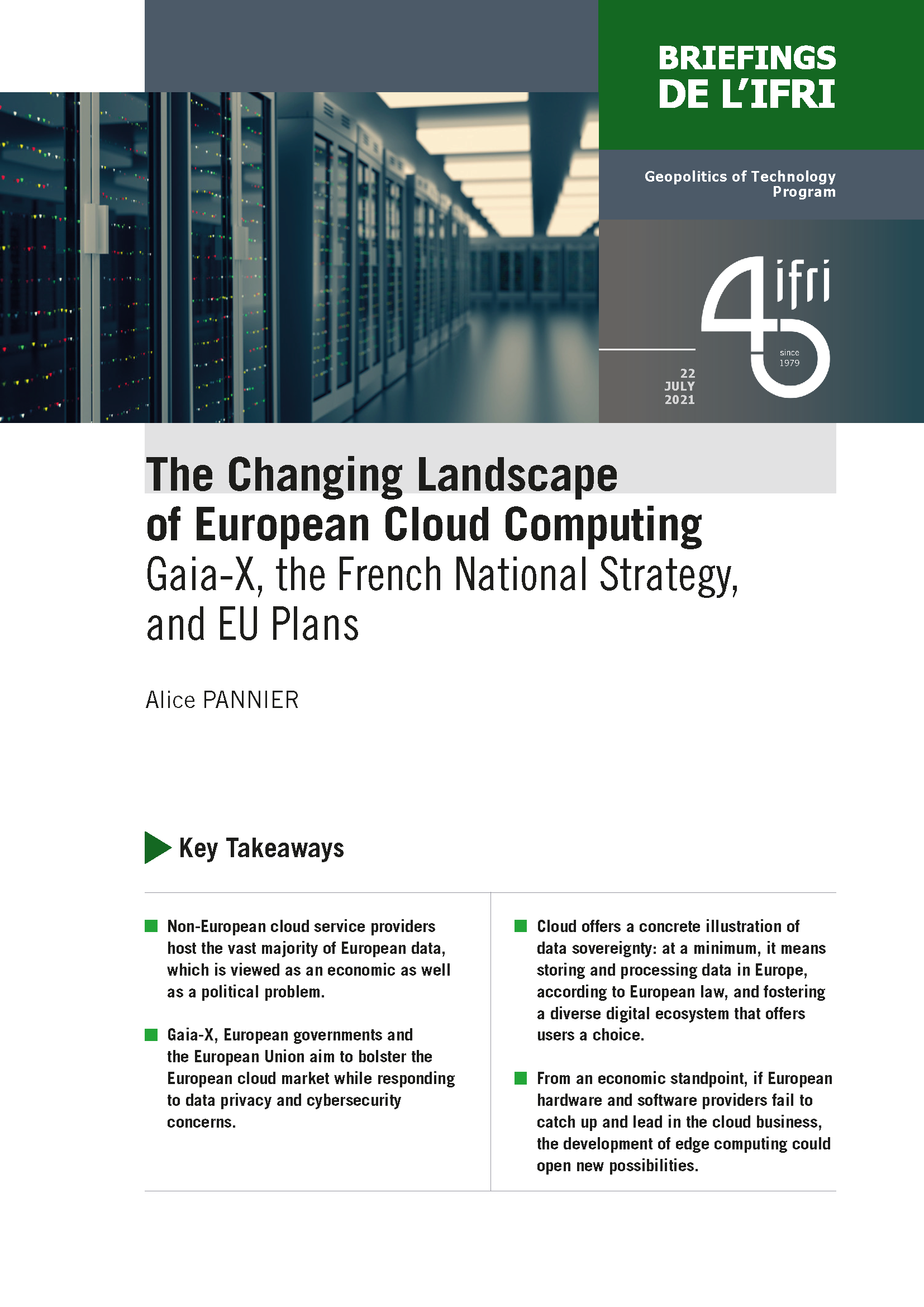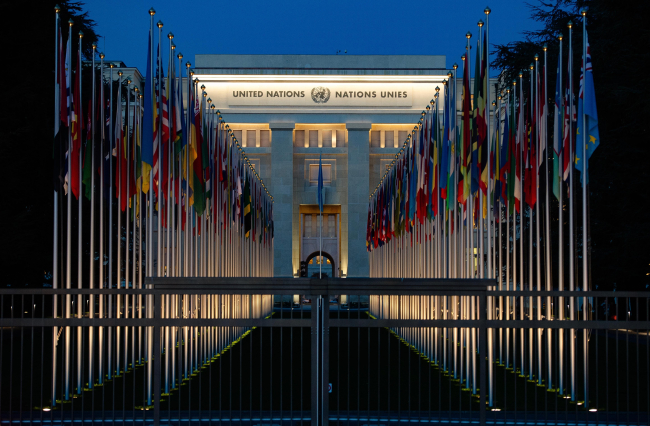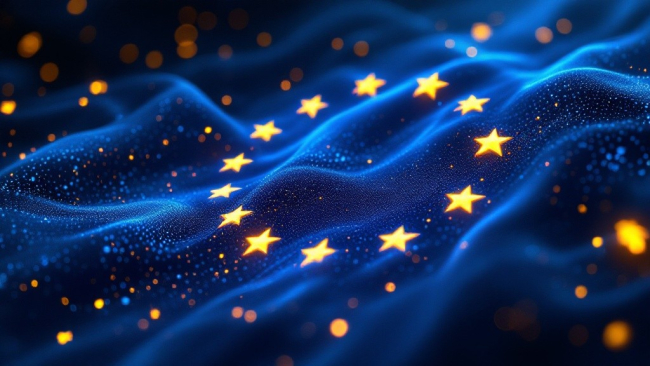The Changing Landscape of European Cloud Computing: Gaia-X, the French National Strategy, and EU Plans

Non-European cloud service providers host the vast majority of European data, which is viewed as an economic as well as a political problem. Gaia-X, European governments and the European Union aim to bolster the European cloud market while responding to data privacy and cybersecurity concerns.

It is estimated that, with the ongoing digital transformation, the global volume of data will be multiplied by five by 2025. Cloud technologies are playing a central role in facilitating this growth.
Today, non-European service providers host 80% of European data. This situation has been called into question over the past few years. For nearly a decade, but especially from 2018 onward, digital sovereignty – in particular, sovereignty over data – has been seen as a necessary response to the privacy and cybersecurity concerns of Europeans, whether individuals, governments, or industry. Europe has sought to build its own governance framework for data and to develop European cloud solutions.
European initiatives in the cloud sector - even if they are not fully coordinated - illustrate in a rather practical fashion what the sometimes-hazy terms of data sovereignty can entail. When it comes to cloud computing, at a minimum it means storing and processing data in Europe, according to European law, and fostering a diverse digital ecosystem that gives customers the choice among various suppliers and data protection regimes.

Available in:
Regions and themes
ISBN / ISSN
Share
Download the full analysis
This page contains only a summary of our work. If you would like to have access to all the information from our research on the subject, you can download the full version in PDF format.
The Changing Landscape of European Cloud Computing: Gaia-X, the French National Strategy, and EU Plans
Related centers and programs
Discover our other research centers and programsFind out more
Discover all our analysesRegulatory Dynamics and Tensions in the Space Sector: Towards and Americanization of Space Law?
The development of space law has gradually evolved from a top-down normative dynamic dominated by the founding impetus of the UN to a bottom-up normativity driven by national and industrial practices. This evolution is now accompanied by growing normative competition, raising the risk of an Americanization of space law and prompting the question of a European response.
The Sustainability of Space Operations: An Opportunity for European Leadership?
As space becomes a key arena for power projection strategies, while facing growth and diversification of orbital activities, the concept of “space sustainability” is emerging as a new framework of analysis for space governance.
The “Huawei Saga” in Europe Revisited: German Lessons for the Rollout of 6G
While the European Union attempted to coordinate a collective response through its 5G Toolbox in Europe’s 5G infrastructure, member states diverged significantly in balancing political, economic, and technological considerations. Germany, despite its economic ties to China and status as Europe’s largest telecom market, only reached a tentative agreement in July 2024—one that appears largely symbolic.
European Startups and Generative AI: Overcoming Big Tech Dominance
Europe is at a crossroads. Faced with the domination of American Big Tech across the entire generative Artificial Intelligence (AI) value chain, from foundation models to cloud infrastructure, distribution channels, and open source, it risks long-term technological and economic decline. Yet generative AI also represents a major opportunity for economic transformation, with a potential value estimated at 1.5 times France’s gross domestic product (GDP). To turn it into a driver of renewal, Europe must move beyond the illusion of total technological independence and instead build an ecosystem that leverages Big Tech resources while strengthening its own innovation capabilities.












